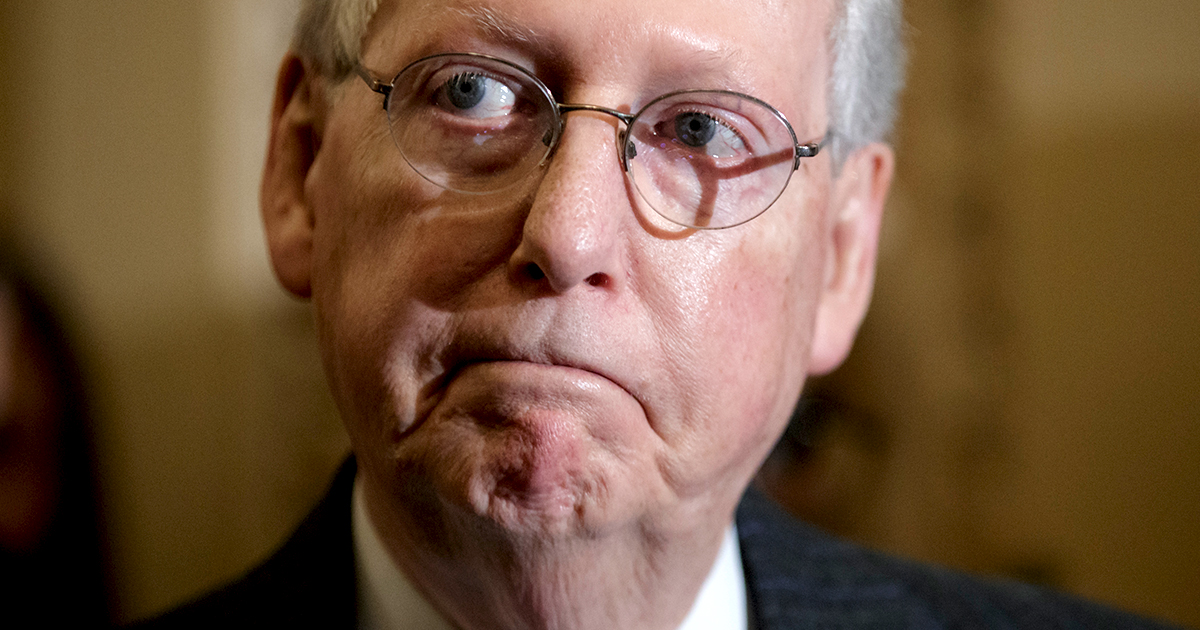Here are the Winners and Losers of the Senate Health Care Bill

By:
The Senate released its version of the GOP health care bill on Thursday—after weeks of secrecy surrounding the bill—offering minor changes to the previous version that passed the House last month.
The bill would roll back Medicaid expansion, eliminate essential health benefits, repeal the Affordable Care Act's—known as Obamacare—individual mandate, and strike tax cuts for the wealthy and insurers. Here are the winners and losers of the bill, as shown in screenshots from the bill:
 AP/J. Scott Applewhite - apimages.com
AP/J. Scott Applewhite - apimages.com
WINNERS
1. The top 1 percent of Americans.
The Senate's version of the GOP health care bill includes about $1 trillion in tax cuts for top-earners. Approximately 40 percent of the tax cuts proposed in the bill would benefit the top 1 percent of Americans and 64 percent of the tax cuts would benefit Americans in the top 20 percent, according to the Tax Policy Center.
"The tax cuts include a repeal of a 3.8 percent investment tax—such as capital gains—and a 0.9 percent Medicare payroll tax," CNBC reported.
2. Insurance companies.
The Senate bill, like the House version before it, repeals an Obamacare rule that capped how much of their executives' salaries health insurance companies could deduct for tax purposes.
While corporations are generally able to deduct "$1 million in cash per executive, plus the cost of 'performance-based' stock awards and options," insurers were limited to deductions of their executive's salaries up to $500,000 under the rule, The Los Angeles Times reported. Under the Senate's plan, insurers would be able to claim the same deductible as other corporations.
3. Tanning salons?
For reasons that Sen. Bob Casey declined to analyze in the above tweet, the Senate health care bill repeals taxes that were imposed on indoor tanning salons in order to combat skin cancer and raise funds to cover the costs of the Affordable Care Act.
LOSERS
1. Low-income Americans
Though the Senate health care bill preserves premium subsidies—tax breaks that help cover out-of-pocket expenses—for certain low-income Americans, its version significantly reduces those subsidies. Vox's Sarah Kliff explained:
"The Affordable Care Act provides government help to anyone who earns less than 400 percent of the federal poverty line ($47,550 for an individual or $97,200 for a family of four). The people who earn the least get the most help. The Senate bill would make those subsidies much smaller for many people, and only provide the money to those earning less than 350 percent of the poverty line ($41,580 for individuals and $85,050 for a family of four)."
Beyond reduced subsidies, the sweeping Medicaid rollbacks proposed in the bill would directly impact vulnerable populations, namely low-income Americans. The Congressional Budget Office (CBO) estimated that, under the ACA's Medicaid expansion, 15 million low-income Americans would have gained coverage by 2026. But under the new plan, Medicaid funding would be slashed by $800 billion over the next 10 years, which could put coverage in jeopardy for tens of millions of Americans.
2. People with pre-existing conditions.
States would be able to request waivers to eliminate coverage requirements for individuals with pre-existing conditions—which could ultimately cause their premiums to rise. The list of pre-existing conditions includes cancer, mental health conditions, diabetes, and pregnancy. For states that don't opt out of the pre-existing conditions coverage mandate, however, those Obamacare protections would be left in place.
3. People suffering from substance abuse disorders.
Unlike the House version of the GOP health care bill, the Senate version only authorizes $2 billion in state grants for opioid treatment programs, as opposed to 10 years. What's more, the Medicaid rollback could leave as many as 2.8 million Americans with substance abuse disorders—including 220,000 suffering from opioid addiction—without coverage for treatment.
4. Children
Children account for half of Medicaid enrollees, so the substantial rollbacks to the federal program included in the Senate health care bill would affect this group in particular.
"Children’s hospitals are reliant on Medicaid funding," The Atlantic reported. "Because they need the money to keep the lights on, slashing covered benefits and enrollees would decrease revenues. It’d diminish the kinds of care these hospitals are able to provide children regardless of their insurance, and reduce their ability to provide uncompensated care for uninsured kids."
5. Americans with mental health disorders.
The elimination of mental health treatment as an essential health benefit—on top of the Medicaid rollbacks—would put coverage for people with mental illnesses at risk.
"Medicaid is the single largest payer of mental health services in the country," HuffPo reported. "This could potentially leave millions of Americans without coverage that could help them get the care they need, like therapy, for mental health issues."
6. Women
The Senate health care bill would defund Planned Parenthood, a reproductive health care provider and education service that serves five million men and women annually.
It also prohibits women from using premium subsidies to buy health insurance plans that cover abortions—other than those deemed medically necessary to save the mother's life or for pregnancies that were the result of rape or incest. As previously noted, pregnancy could also be considered a pre-existing condition if a state requests a waiver that would exempt it from being required to cover pre-existing conditions without raising costs.
7. Blind and disabled people.
Proposed cuts to Medicaid would also affect blind and disabled Americans, who accounted for 13 percent of the program's enrollees in 2015, according to the CBO. About 34 percent of Medicaid spending went toward the blind and disabled that year, and dramatic rollbacks threaten to limit their coverage and leave some in this group without coverage entirely as the expansion is phased out over the next 10 years.
